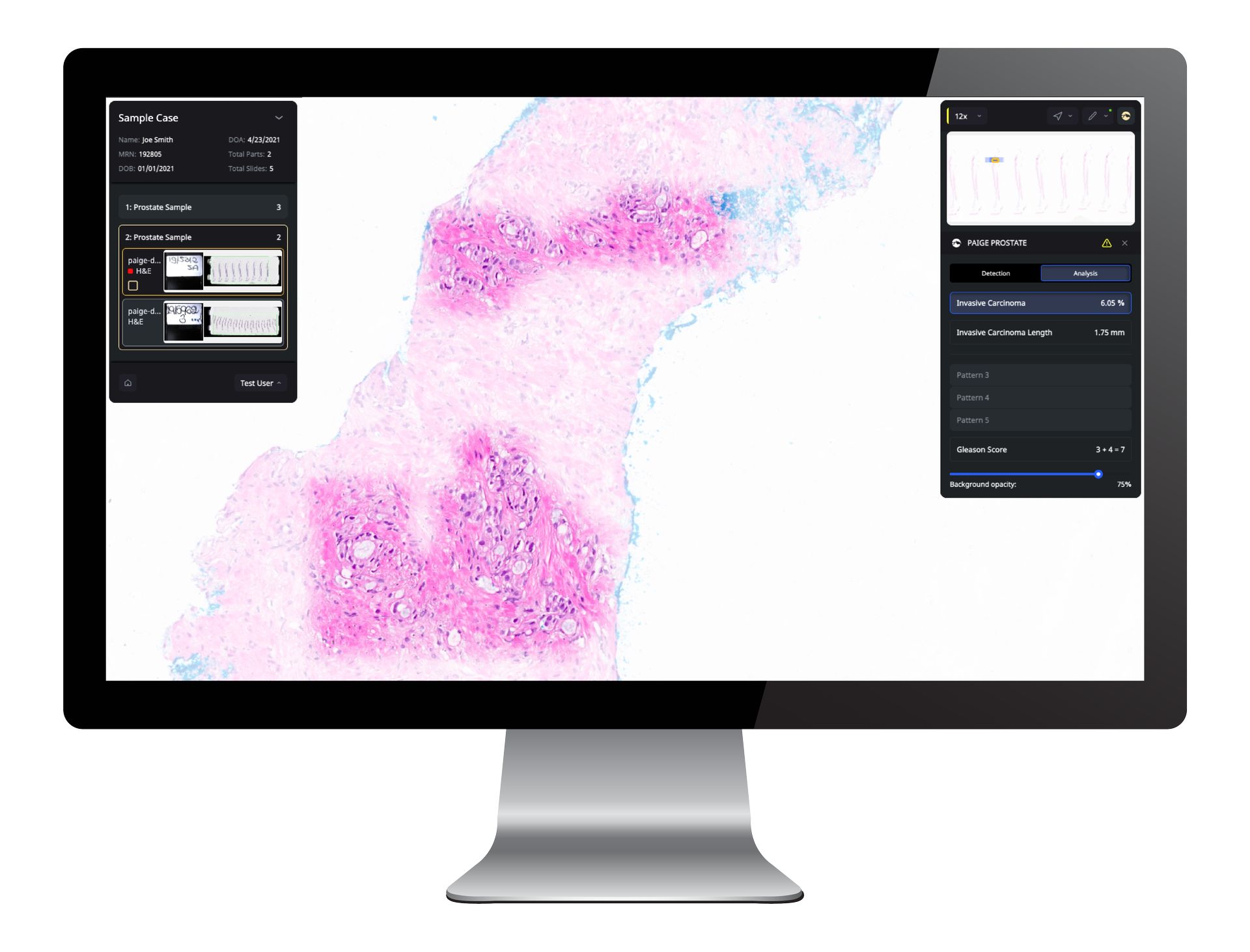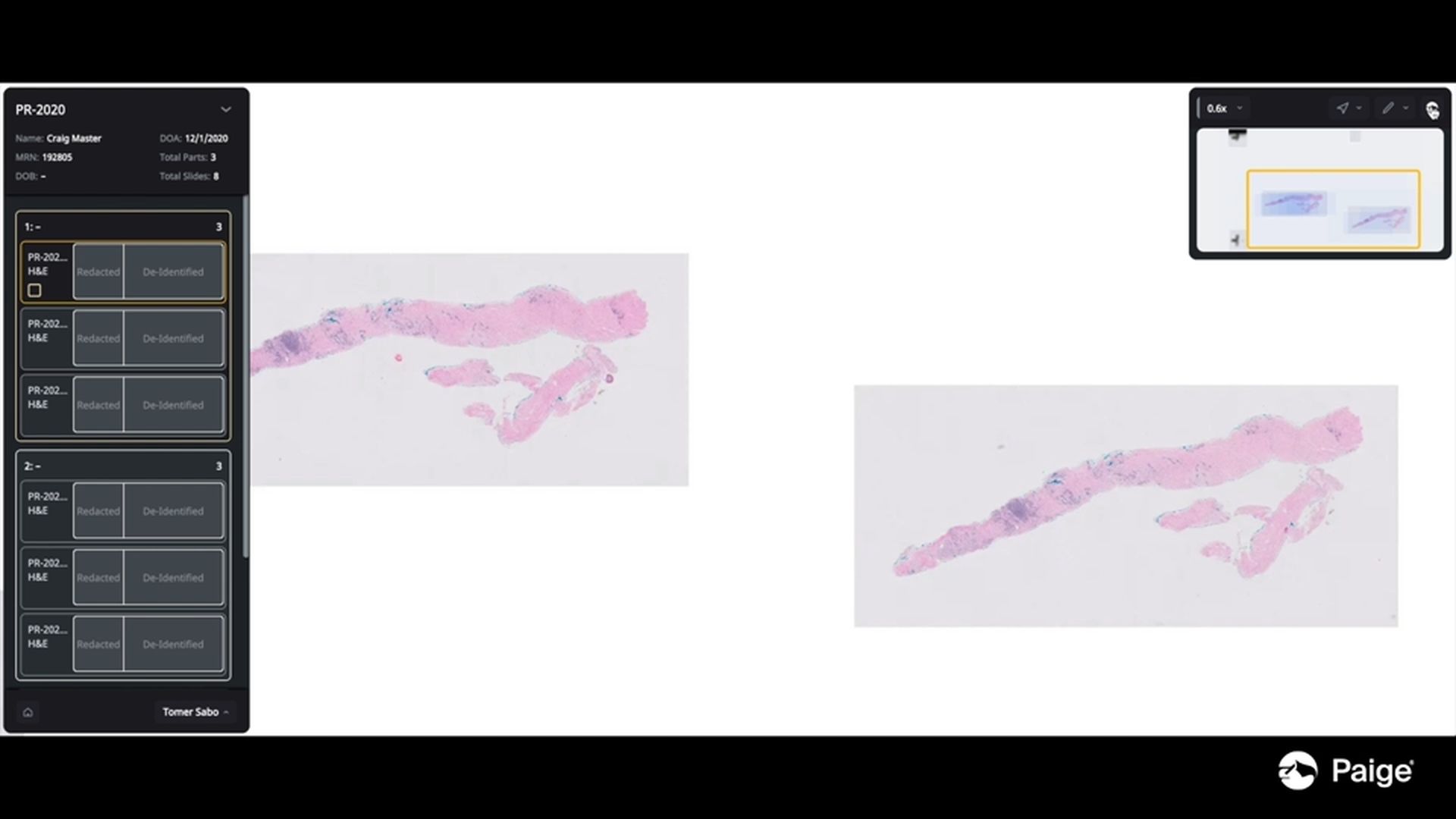A much-needed clinical trial has begun in three hospital systems across England, testing artificial intelligence (AI) technology designed to detect and grade prostate cancer.
The initiative, known as ARTICULATE PRO, is spearheaded by the University of Oxford in partnership with Paige, a leader in clinical AI applications for cancer diagnosis.
The trial involves North Bristol Trust Southmead Hospital, University Hospitals Coventry and Warwickshire, and Oxford University NHS Foundation Trust. These institutions are now incorporating Paige’s AI technology into their standard care procedures.
Why do we need AI in such an area? Well, the primary goal of this multisite trial is to evaluate how AI can enhance patient outcomes, especially in light of the increasing number of prostate cancer cases.
The digital pathologist on action
The trial utilizes the Paige Prostate Suite, an AI system designed to assist pathologists in detecting, grading, and measuring tumors in prostate biopsies and tissue samples. Pathologists at the participating hospitals are assessing the impact of this AI technology on their clinical decision-making, pathology service delivery, and resource utilization in real-world settings.

Professor Clare Verrill, the Principal Investigator of ARTICULATE PRO, emphasizes that patients are at the center of this study. The aim is to ensure that patients benefit safely and effectively from this powerful AI technology.
Dr. Jon Oxley, a uropathologist with over 25 years of experience in prostate cancer research, notes that Paige’s AI applications have achieved a level of validation and performance that allows for safe and effective live clinical use.
Unique aspects of the study
One of the distinctive features of this study is its implementation across hospitals using different digital pathology scanners and information systems, serving diverse patient populations. This variety allows for a comprehensive assessment of how Paige’s AI technology can best serve patients, histopathologists, and hospital systems in prostate cancer diagnosis.
Dr. Bidisa Sinha from University Hospitals Coventry and Warwickshire believes that AI can improve the accuracy and consistency of cancer grading and assist in detecting small areas of cancer that are easy to miss. She proudly notes that this world-leading research positions UHCW as a global leader in digital and computational pathology.

Investing in the future
The ARTICULATE PRO study is funded by the Accelerated Access Collaborative (AAC) Artificial Intelligence in Health and Care Award, overseen by the Department of Health and Social Care. As prostate cancer rates continue to rise, the integration of AI in diagnosis could potentially lead to earlier detection, more accurate grading, and ultimately improved patient outcomes.
If successful, the trial could pave the way for wider adoption of AI in cancer diagnosis across the UK and beyond, potentially revolutionizing how we approach prostate cancer detection and treatment.
The results of this trial are eagerly anticipated by the medical community and could bring us to a new era in the fight against prostate cancer.
Featured image credit: Paige AI





